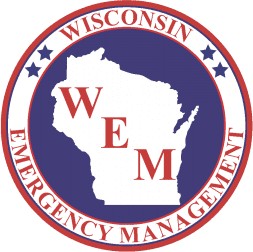(MADISON) – With recovery from Hurricane Harvey and preparations for Hurricane Irma underway, people are wondering how they can help. Before heading to a disaster area, consider the complexities of the situation. To make the most of your efforts and assist impacted communities best, consider these tips for donating and volunteering responsibly:
- Volunteering:
Spontaneous or unaffiliated volunteers who self-deploy may create an additional burden on impacted communities where resources for food and shelter are scarce. The State of Texas is asking potential volunteers to register with a voluntary or charitable organization of their choice, many of which are already in Texas supporting survivors on the ground. To register as an affiliated volunteer with a voluntary or charitable organization, please visit the National Voluntary Organizations Active in Disaster website at https://www.nvoad.org/ for a list of partners active in disaster. You may also register your interest to volunteer. Partner organizations may reach out to you for your help. Florida officials also ask that you do not self-deploy to their state. - Please do not donate unsolicited goods:
The overwhelming generosity of the public is greatly appreciated. However, the influx of donated items exceeds the needs of the impacted communities at this time. Therefore, the State of Texas is asking that you please DO NOT donate unsolicited goods such as used clothing, miscellaneous household items, medicine, or perishable foodstuffs at this time. These unsolicited donations are forcing supporting agencies to redirect staff and volunteers away from providing direct services to survivors in order to sort, package, transport, warehouse, and distribute items that may not meet the needs of disaster survivors. - Cash donations to trusted organizations:
The most effective way to support disaster survivors in their recovery is to donate money to trusted, reputable, voluntary or charitable organizations. Cash donations offer these organizations the most flexibility to address urgently developing needs. With cash in hand, these organizations can obtain needed resources nearer to the disaster location. This inflow of cash also pumps money back into the local economy and helps local businesses recover faster. - Be patient.
Recovery lasts a long time. There will be volunteer needs for many months, often years, after the disaster – especially when the community enters the long-term recovery period.


